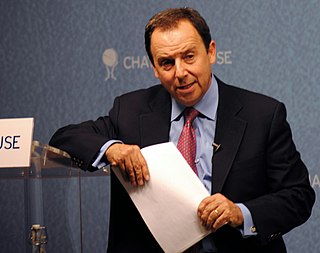A Quote by Peter Drucker
No financial man will ever understand business because financial people think a company makes money. A company makes shoes, and no financial man understands that. They think money is real. Shoes are real.
Related Quotes
At Travelers, we were much more opportunistic. It was very successful, but it wasn't an integrated financial services company. We had a property casualty company, a life company, a brokerage company. We were a financial conglomerate. It wasn't a unified, coordinated strategy of any sort. When it merged with Citi, that became a big issue; Citi, at that time, wasn't yet a fully integrated, coordinated company.
The industry financial advisers, on average about 85% male, tends to be a more mature financial adviser - so I think in their 50s, really. For so many companies, in their 60s. In fact, there is one company that was telling me they had more financial advisers over the age of 80 than under the age of 30.
The President [Barack Obama], I think if you look at it from his shoes, you know, was facing a very difficult situation where he had to own Washington, tame New York, save a collapsing economy, with a collapsed financial system. He moved, I think, to a team that he felt was tried and true, in terms of dealing with financial crisis. That was his decision.
In the end, alchemy, whether it is metallurgical or financial, fails. A base business can not be transformed into a golden business by tricks of accounting or capital structure. The man claiming to be a financial alchemist may become rich. But gullible investors rather than business achievements will usually be the source of his wealth.
From the 1990s onward, the financial sector created a vast array of instruments designed to separate investors from their money, financial derivatives of an ever-increasing level of complexity. At some point, this complexity reached a point where even the creators of the derivatives themselves didn't understand them.

































